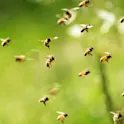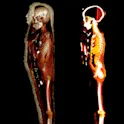
Life sciences
22 Mar 2023
Unusual Toxoplasma parasite strain killed sea otters and could threaten other marine life
by Angharad Brewer Gillham, Frontiers science writer Image by Mr Laird Henkel, California Department of Fish and Wildlife Four sea otters that stranded in California were found to have died of an unusually severe form of toxoplasmosis, a disease caused by the microscopic parasite Toxoplasma gondii. Scientists warn that this new strain, never previously reported in aquatic animals, could potentially pose a health threat to other marine wildlife and humans. Scientists in California are raising the alarm about a newly reported form of toxoplasmosis that kills sea otters and could also infect other animals and people. Although toxoplasmosis is common in sea otters and can sometimes be fatal, this unusual strain appears to be capable of rapidly killing healthy adult otters. This rare strain of Toxoplasma hasn’t been detected on the California coast before, and may be a recent arrival, but scientists are concerned that if it contaminates the marine food chain it could potentially pose a public health risk. “I have studied Toxoplasma infections in sea otters for 25 years — I have never seen such severe lesions or high parasite numbers,” said Dr Melissa Miller of the California Department of Fish and Wildlife, corresponding author of the study […]













